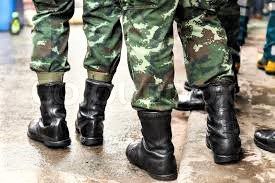Rights group Amnesty International (AI) has accused armed militias, government forces and private military contractors of committing war crimes amid allegations of indiscriminate attacks on hundreds of people in the country’s troubled Cabo Delgado.
In a report published on Tuesday, AI said hundreds of civilians have been unlawfully killed in Cabo Delgado by the armed group known locally as ‘Al-Shabaab’ as well as by government security forces and a private military company hired by the Maputo authorities.
The report, “‘What I Saw Is Death’: War Crimes in Mozambique’s Forgotten Cape”, documents serious violations of international humanitarian law by all parties resulting in widespread death, destruction and a humanitarian crisis that has caused more than half-a-million people to flee from their homes.
It also details accounts of violence against civilians by ‘Al-Shabaab’, extrajudicial executions and other human rights violations by government security forces, and indiscriminate attacks by South African private military company Dyck Advisory Group.
“All three have committed war crimes, causing the deaths of hundreds of civilians,” AI East and Southern Africa director Deprose Muchena.
He accused the international community of turning a blind eye to the Cabo Delgado crisis “as it has escalated into full-blown armed conflict over the last three years.”
“We are calling on all parties to the conflict to immediately stop targeting civilians, and for the government of Mozambique to urgently investigate the war crimes we have uncovered.”
The report was particularly critical of government forces who are blamed of carrying out vicious attacks against civilians accused of collaborating with or supporting ‘Al-Shabaab’.
The military and police have committed extrajudicial executions and acts of torture and other ill-treatment, and have mutilated bodies, it said
Mozambique has experienced a wave of armed attacks in Cabo Delgado province since October 2017 and these have escalated significantly since January 2020, leaving hundreds of thousands of people without adequate access to food, water, sanitation or any basic services.
JN/APA


